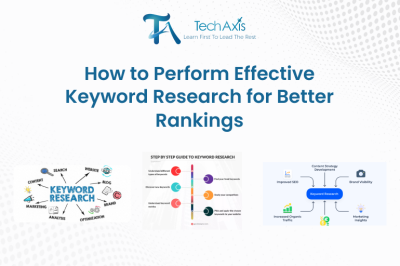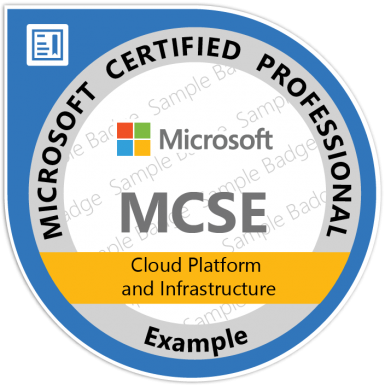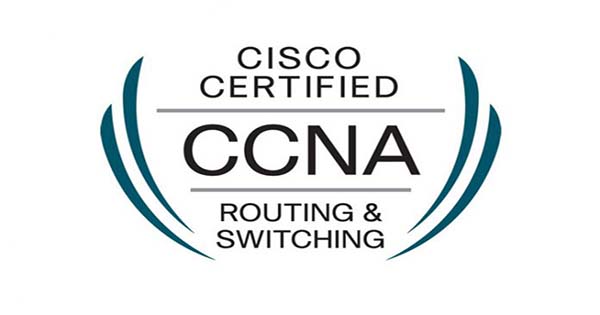
How to Perform Effective Keyword Research for Better Rankings
Even in the constantly changing process of SEO and digital marketing, keyword research remains the foundation of a sound plan. In this case, your content will not get across to your audience or have good search engine visibility because you are not targeting the right keyword. Keywords are the link between what your users are looking for and what you have to offer – that’s why it’s important to know how to find and use them properly. This will be an extensive guide on how to do your keyword research right for better rankings. It does not matter if you are a ranking newbie, or if you are a long-time marketer, it doesn’t matter, this guide, techniques, tools, and strategies will show you how to identify the right keywords that can be used, and which ones will drive traffic to your website.
Understanding Keywords and Their Role in SEO
Let's first understand what is keywords in SEO. The answer is simple Keywords are the particular words or phrases that visitors enter the search engine to get information, goods or services. These are known as keywords and are extremely important for evaluating the likelihood of your content matching with a user's search intent. In SEO, therefore, it is important to target the right keywords so that the article can get to the right people.
How do search engines use keywords?
Google and other related search engines employ keywords to set the context of the Web page and their correlation to the kind of question a user wants answers to. During the indexing, search engines also analyze the keywords in the documents themselves, the titles, descriptions, and other metabolites to understand what a particular page is all about. Concerning its connection with frequently searching for keywords, it means that by placing any content on your site, the closer to the chosen keywords, the higher the probability of appearing on the top list of search results.
The importance of relevant keywords
Having identified that most of the visitors are interested in a specific topic it becomes very important to incorporate the key keywords into the website. Targeted keywords align more with the user’s search query and therefore have better conversion rates, lower bounce rates and improved user experience. However, targeting the wrong keywords, or extremely broad ones, can cause a low ranking, or worse, loads of traffic but few converting visitors. This is why keyword research is so necessary for optimizing any SEO marketing strategy.
Types of keywords (short tail, long tail)
There are different types of keywords, each serving a unique role in SEO:
- Short Tail Keywords: Low term length, high competition, and high search volume rates, such as ‘shoes’.
- Long-Tail Keywords: Specific keywords with more specific niches, but less competition and less popular search queries, but with better intent, for example ‘running shoes for flat feet’.
The presence of all these keyword types guarantees wider coverage and better-quality traffic.
Keyword Research Tools and Techniques
In general, keyword research can be done using free as well as paid tools; however, the functionalities of all the paid tools will be more powerful and detailed than the free tools. Although there are numerous keyword research tools available, Google Keyword Planner is one of the best free tools that offer basic ideas and volume data ideal for novices and small business owners. However, there exist more paid tools like SEMrush and Ahrefs featuring different features like competitors’ analysis, keywords’ rank difficulty, and backlinks for more detailed SEO plans. It is usually deliberative whether to use the tools that are free of charge or to buy the special programme for SEO.
Popular keyword research tools
- Google Keyword Planner: A tool with no cost involved that proactively provides keywords to use as well as the number of searches for those terms. Best for novice people or the types of PPC.
- SEMrush: A keyword research tool that provides more depth on keyword analysis, competitors, and SEO ranking.
- Ahrefs: The second one is a paid tool that offers broad opportunities for keyword search, analysis of backlinks, and a site audit, which makes Ahrefs one of the most popular SEO tools among professionals.
- Ubersuggest: A free option that anticipates keyword terms, monthly searches, and content ideas using performance analysis of the competitors.
Keyword research techniques:
- Brainstorming: First, consider your targeted sector or speciality and then generate as many words as possible that you believe people may use to search for your products, services or material you offer. This can range from spelling variations to related words, to phrases that are similar to what your target market will use.
- Competitor Analysis: Look for the most searched keywords that your competitors are ranking for using the SemRush and Ahrefs. It allows you to spot new keywords that should be included in your content to beat them in some topics.
- Search Engine Suggestions: Have you ever tried searching something on search engines like Google, as you start typing the query, suggestions will pop up. Such consist of frequently used search terms, many of which can be useful in establishing long-tail keywords associated with it.
- People Also Ask (PAA) Queries: Google offers another keyword source in the Partentine “People Also Ask” section based on ubiquitous questions. Such queries can stimulate the generation of materials that would be useful in responding to these unique intentions of a search.
- Google Trends: You can also use Google Trends to look at the amount of interest people have in certain keywords at different moments, for instance. This aids in understanding the trends and the seasonality for keyword optimization.
Effective Keyword Research Strategies
Any keyword targeting begins with a definition of who you are targeting – your audience. This should help you pick up relevant keywords, knowing well the people involved, their pain and their preferences. You can check them within Google Analytics, subscribers’ surveys, and even social media analytics. The more you understand your target audience, the simpler it is to select keywords that can elicit a favourable response or answer a question your audience might have.
Determining search intent
Search intent relates to the reason why the user is looking for something in the search engines. Knowledge of this purpose is crucial to choosing the right keywords and creating content that will satisfy the users’ aim. The three main types of search intent are:
- Informational: The user has a problem to solve, and they look for information on how to solve it, for instance, “How to develop a content strategy?”
- Navigational: Indeed, the user has a very clear need when it comes to search queries; the user is searching for a particular website or brand, for instance, “Facebook login page.”
- Transactional: It is the action of the user, that the user wants to perform such as a purchase, for instance, “buy SEO tools”.
Through mapping keywords to intent, the focus will be to address the needs of the users, thus, making their experience on your website better which translates to better conversion rates.
Considering SERP features
A simple web search no longer delivers blue links with the text content only, but SERP features that come with them, including featured snippets, People Also Ask, and the local pack. As a result, to reach the largest audience, adjust your content to these elements. Explore what sort of queries activate these elements and make your content brief and to the point when aiming for snippets or try to give geo-related information if targeting the local pack or ease user’s concerns if going for PAA. It is a good idea to rank in those areas as they will help increase click-through rates and visits.
Keyword difficulty and competition analysis
Keyword difficulty refers to the degree of difficulty faced in trying to optimize a website via SEO for a particular keyword dominated by other competing websites. As you can see high difficulty keywords are generally owned by authoritative websites, and hence competition for such keywords is a bit steep. From Ahrefs to SEMrush, to evaluate keywords for difficulty and find keywords that are not very hard to rank for, but have enough people searching for them. This way you are certain that your SEO efforts are directed towards keywords that you stand a high chance of ranking for.
Keyword clustering and grouping
Keyword cluster means an optimization of a group of keywords that is used in an SEO strategy whereby many queries are aimed at a single piece of content. Cluster, therefore, helps to target different variations of the keywords with related intentions to impact more people. For instance, if you are targeting a keyword such as “SEO tools”, then other derivatives of the keyword may include; “best SEO tool for newbies” or “cheap SEO software “. Keyword grouping makes it easier for you to create fresh content and raises your probability of targeting several keywords that are highly relevant than just targeting one keyword at a time.
Keyword Optimization for On-Page SEO
Placing your keywords correctly is the first step of keyword optimization that you have to complete regarding optimal SEO. The most important spots to include your target keywords are:
- Title Tags: This is the most essential of all on-page SEO factors. Since the page title builds upon the domain authority, your anchor keyword should be placed at the beginning of the title so that the search engines can identify that the page is relevant to the keyword.
- Meta Descriptions: Meta descriptions are not directly related to ranking but they have a direct correlation with Click-Through Rate. It reminds the reader about the focus of your page and if you have properly included the target keyword here, the search engine will also understand that.
- Headings (H1, H2, etc.): Position your primary topic in the H1 tag; put the other keywords or synonyms in subtopics or headings (H2, H3) to help create a framework that users and search engine bots will follow.
- Body Content: Write your keyword organically into your content and preferably at least twice in the first two paragraphs of your text while maintaining readability.
Keyword density
Keyword density means how often your specific keyword is used throughout your content. There isn’t a definite percentage that has to be followed but a good guide is to use the keyword frequently enough to make search engines sit up and take note but not so frequently as to offend SEO standards. Do not overdo it with keywords, attempting to place them every few words to ensure an improved Google ranking; this can seriously harm your website ranking and create an unfavourable user experience.
Keyword variations
For an enhanced understanding of your content and doubled chances to rank for different options, use keyword variations and phrases. It helps to ‘trap’ users who search using different keywords but are interested in the same type of information. For instance, if your core keyword is “digital marketing strategies,” you can use other related keywords such as “online marketing tactics” in a piece of your content i.e. to use your keyword enough to signal relevance without overstuffing. Aim for a natural flow in your writing; avoid keyword stuffing, which can lead to penalties from search engines and a poor user experience.
LSI keywords
LSI keywords are the terms or phrases that are synonymous with the main keyword used in the Latent Semantic Analysis. Internet content indexing tools employ them to get a sense of the usage history of your content and its depth. Using LSI keywords improves the relevance of the content on your web page and helps search engines determine the subject of your page. To find LSI keywords one can use related searches such as Google’s People Also Ask.
Keyword-rich URLs
This is part of on-page SEO where the URL structure of your website is also relevant as well. It is helpful to have a keyword in the URL as it becomes more meaningful and easy when compared to harder coded URLs while letting the search engines know it is relevant to the keyword. For example, instead of using a common URL, using a keyword-oriented URL such as www.yourwebsite.com/keyword-research-tips increases the click-through rate and ranking. Do not use lots of words in URLs as well as avoid adding unnecessary characters for the sake of SEO.
Keyword Research for Off-Page SEO
In off-page SEO, links which point to your site are termed backlinks and are regarded as very essential elements. Studying backlinks it is possible to define what keywords other websites use while linking to your content. This can be done on Ahrefs or SEMrush where it can list down backlinks from quality websites. The next thing, with the knowledge of which keywords such links originate from, you can tweak it to your content performance to target similar keywords to enhance the domain authority.
Anchor text optimization
Anchor text in reality is the visible text part of a hyperlink. Optimal use of the anchor text can help in the following ways properly using the relevant keywords so that both the users and the search engine understand what is being linked. Natural insertion of the keyword in the anchor text should be used in the backlinks, but this should not be overdone. This is important since it removes duplication of anchor texts and makes the linking appear natural so that it won’t attract a penalty from the search engines.
Guest posting and outreach
Guest blogging is a type of off-page SEO technique where the writer has to write articles for other websites and link back to their websites. Many guest blogging services make use of highly targeted search queries for guest blogging opportunities within the blogger’s niche market, and specifically for sites with high Page Ranks. Place content around keywords such as those that produce traffic in your field of work, and use anchored text while linking back to your site.
Social Media Marketing
Social media doesn’t necessarily influence SEO results, although sharing your content on social media can result in higher traffic and backlinks. Off-page SEO can be extended by targeting keywords and hashtags, which are already popular in your niche on social networks and will attract users’ attention to your posts by themselves.
Tracking and Measuring Keyword Performance
- Google Analytics: This can be done by tracking the number of unique visitors through the Google Analytics tool by the particular keywords used in the search engine. Use session report indicators and further apply the number of sessions and bounce rate to evaluate the efficiency of the selected keywords.
- Google Search Console: This tool finds out how your site ranks in the Google search engine which is important information. In the “Performance” report, you check the number of impressions, clicks, and average position of the targeted keywords and correlate this information with the results achieved.
- Keyword Ranking Tools: Use the SEMrush, Ahrefs, or Moz services to analyze the change in keyword positions. These tools are useful in determining changes in the rankings and in the competitors, thus you can make the necessary changes in the keyword strategy.
- Conversion tracking: Apply conversion tracking in order to determine the effectiveness of your keywords in influencing strong calls to action such as getting subscribers to fill out a form, download materials or even make purchases. Data on conversion indicates which keywords bring more returns, and so, more informed decisions can be made.
Conclusion
Therefore, the general premise of this paper is that keyword research is crucial to any SEO campaign. This is because by discovering the function of keywords, choosing the correct instrument, implementing on-page and off-page SEO, or, most importantly, monitoring the standing of keywords you use, one can effectively improve the visibility of the website and its ranking in the Search Engine. It keeps changing, so researching for the keywords both long-term and short-term, and making the necessary changes is very crucial.
Here at TechAxis, we understand just how important it is to have full and effective control over SEO and the process of keyword research. With our SEO training courses in Nepal, you obtain all the knowledge and skills required to be successful in the SEO industry. Whether you are a novice practitioner or want to brush up on current trends and techniques our qualified instructors will provide hands-on guidance.











